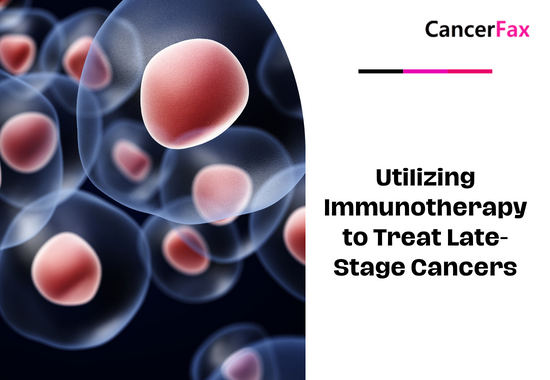Cases of NK cell immunotherapy for advanced liver cancer
92-year-old advanced cancer patient has complete remission
Seven years ago, Ms. M, who was in her 80s, was diagnosed with hepatocellular carcinoma (caused by cancer in the past due to blood transfusion and infection with hepatitis C virus). Because she was in good health at the time, she was successfully surgically removed.
In 2016, the cancer recurred, but considering that Ms. M was already old at this time, surgery was no longer recommended.
Ms. M. was born into a medical family, and her daughter is also a doctor. She consulted on many treatments suitable for mothers other than surgery. Due to the poor location of the tumor, radiofrequency and embolization treatments are not feasible. Among the most cutting-edge radiotherapy methods, the first is to exclude heavy ions, which are not applicable at all, and the second is proton therapy, and the mother ’s physical strength is unbearable. Finally, only the TOMO knife can accurately locate the mother ’s complex disease. Irradiation.
Doctors suggest that Ms. M should be treated conservatively at such an old age. You can try a mild systemic treatment-NK cell reinfusion to improve immunity without using the toxic and side effects of drug treatment. At the same time, combined with Tom knife radiotherapy to kill cancer cells.
The high activation period of NK cell reinfusion into the body is 2-3 days, so Ms. M performs NK cell reinfusion on the weekend after local radiotherapy with TOMO knife. NK cells can move with the blood throughout the body to achieve local + systemic treatment synergy Better treatment effect with anti-cancer effect.
After treatment, ultrasound and PET-CT examination showed that the patient’s lesion was in a radical state. The local lesion has disappeared, the patient’s worry about the metastasis has not appeared, there is no jaundice and ascites, and the patient’s body gradually recovered.
NK cell systemic anti-cancer therapy
NK (natural killer cell, NK) is the immune cell with the strongest anti-cancer effect. The most powerful thing is that it does not require the antigen presentation process and does not require other immune cells to regulate. It can take the initiative, direct, and quickly remove foreign bodies (Virus bacteria infect cells, cancer cells, senescent cells, etc.) Local Fa-rectification.
Although they can quickly defend and directly attack tumor cells, unfortunately, NK cells are only a small part of the immune system, accounting for only 10% of white blood cells. And the study found that after 25 years of age, human immunity declines and the number of NK cells becomes less. The number and activity of NK cells in tumor patients and patients after tumor surgery have changed to a certain extent, and they cannot effectively exert anti-cancer effects..
Researchers are now focusing on “adoptive” NK cell therapy-collecting NK cells from closely related donors and injecting them into patients. This has proven to be safe, and unlike T cell therapy, NK cells do not cause graft-versus-host disease in recipient tissues.
In order to improve the activity and number of NK cells in the body, Japanese scientists have invented a multiplier method, which is to extract 50ml from human blood, isolate a small amount of NK cells and then expand the culture to increase the number to the original 1000 times, the number reaches 1 billion to 5 billion, and then returned to the body, a large number of NK cells will circulate 3000 to 4000 times with the blood throughout the body, killing cancer cells, aging cells, diseased cells, bacteria and viruses in the body Once again, to achieve the purpose of anti-cancer and anti-cancer, improve immunity and prolong survival.
At present, there is a large amount of evidence that immunocytotherapy (NK cells) before and after the surgery period can reduce the risk of recurrence and metastasis.
Why liver cancer patients are more suitable for NK cell therapy
NK cells, like the “Molecular Patrol”, patrol the bloodstream everywhere. Once they find foreign cells or mutant cells that have lost their self-identification (called MHC), the NK cell’s receptor immediately sends a signal and rushes to the target cell membrane That is to say, the NK cells must be on the front line of the battle. It releases toxic particles to it, quickly dissolves the target cells, and causes the cancer cells to die within 5 minutes.
It should be noted that NK cells, as the core part of the immune system, are the most valuable innate immune cells in the human body, but they are very few in human peripheral blood, accounting for only 5% -10% of lymphocytes. In the liver, NK cells account for 30-50% of lymphocytes.
Compared with circulating NK cells, NK cells in the liver have unique phenotypic characteristics and functional characteristics, showing higher cytotoxicity to tumor cells.
During the occurrence of liver cancer, the proportion of NK cells and the function of cytokines (interferon-γ) production and cytotoxic activity are reduced.
How NK cells kill cancer cells?
The reason why NK cells can kill cancer cells is because of the balance of the signals of activated receptors and inhibitory receptors on the surface of NK cells. Activated receptor molecules are expressed on the surface of cancer cells and infected cells and recognized by NK cells. In addition, cancer cells and infected cells often lose MHC I molecules, making them susceptible to NK cell recognition.
NK cells exist in human blood and are “first responders.”. It is like a policeman who has been on duty in the body. As blood runs around, NK cells continuously contact other cells while patrolling. Once an abnormality is found in the body Cells, immediately stable, accurate, ruthlessly wait for a time to deal with. They attack and release cytotoxic particles containing perforin and granzyme on the target cell membrane before T cells are deployed, triggering the self-destruction of cancer cells. They can also eliminate cancer stem cells circulating in the body and help prevent metastasis.
Advantages of NK cell therapy
1. Immune cell therapy is the fourth treatment method after surgery, chemotherapy and radiotherapy. NK cell therapy combined with radiotherapy and chemotherapy can effectively remove tumor cells that cannot be completely removed by surgery;
2. NK cell therapy combined with radiochemotherapy can improve the efficacy of radiochemotherapy and reduce side effects;
3. For advanced cancer patients who are not suitable for surgery or radiotherapy and chemotherapy, NK cell therapy is a better choice;
4. Regular treatment with NK cells after surgery can prevent the recurrence and metastasis of cancer;
5. Relieve cancer pain, improve sleep, improve patient’s quality of life, and extend patient’s life cycle;
6. For sub-healthy people, the use of NK cell therapy can reduce the risk of cancer.
Which patients are suitable for NK cell therapy?
Patients with poor physique before surgery, slow recovery after surgery, and fear of occult cancer cells not being completely eradicated.
After radiotherapy and chemotherapy, immunity is low, and side effects are obvious (such as loss of appetite, nausea, hair loss, skin inflammation, etc.), and patients who expect to increase the effect of chemoradiation.
Due to the fear of the side effects of radiotherapy and chemotherapy, patients who hope to use various treatments to achieve therapeutic effects.
Cancer cells in advanced tumors have spread throughout the body, but conventional treatment methods have been powerless, and patients who expect to prolong survival and improve quality of life.
NK cell therapy treatment process
1. Blood collection
Draw 30-50ml of peripheral blood o
f cancer patients and extract mononuclear cells;
2. Laboratory cultivation
In the laboratory, conduct NK cell induction and expansion for 5-7 days;
3. Return
After the NK cell culture is completed, it is returned to the cancer patient like an infusion.

